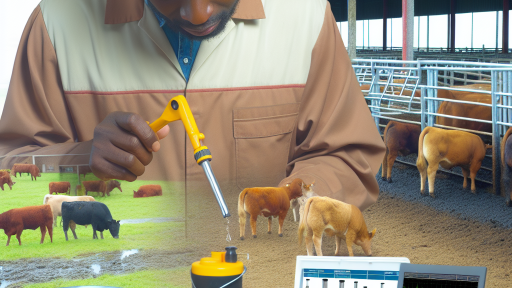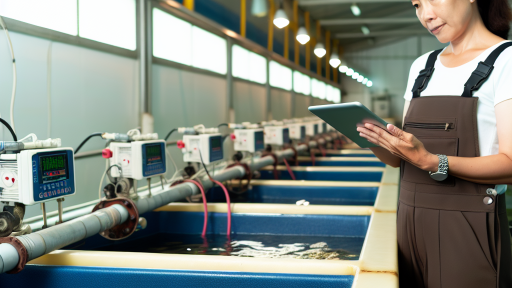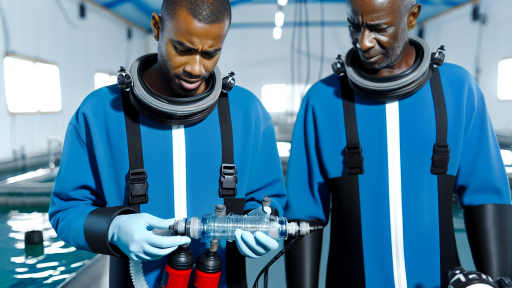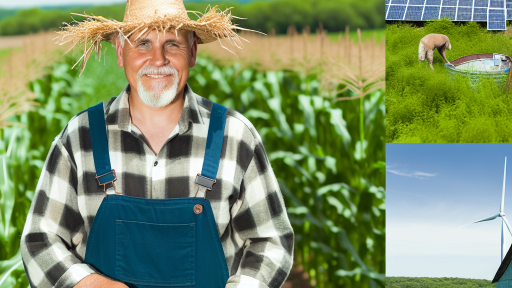Overview of Exotic Livestock and Their Unique Needs
Defining Exotic Livestock
Exotic livestock includes species that are not traditionally raised for agriculture.
Examples often include llamas, alpacas, and various breeds of birds.
These animals can offer unique products and services to farmers.
Unique Nutritional Requirements
Exotic livestock has specific dietary needs that differ from typical farm animals.
Many require specialized feeds tailored to their digestive systems.
Supplements may also be necessary to ensure proper nutrition.
Moreover, some species need access to specific plants or forage types.
Health and Wellness Considerations
Exotic species are susceptible to different health issues than traditional livestock.
Routine veterinary care is essential to prevent disease outbreaks.
Monitoring their well-being involves understanding their behavioral needs.
Stress management is critical for maintaining their health.
Habitat and Environmental Needs
The habitat for exotic livestock must reflect their natural environments.
Space, shelter, and temperature control are vital for their comfort.
Proper fencing helps prevent escapes and protects them from predators.
Social Structures and Interactions
Most exotic species have specific social structures that impact their behavior.
Transform Your Agribusiness
Unlock your farm's potential with expert advice tailored to your needs. Get actionable steps that drive real results.
Get StartedThey often thrive in groups but may require space to establish hierarchies.
Understanding their social needs can enhance their quality of life.
Regulatory and Ethical Considerations
Raising exotic livestock often comes with regulations that must be followed.
Ethical considerations play a significant role in their care and management.
Farmers must ensure that practices align with animal welfare standards.
Introduction to Innovative Technologies in Livestock Management
Innovative technologies revolutionize livestock management practices.
They enhance the care and health of exotic livestock species.
These advancements introduce new methodologies and tools.
Importance of Technology in Livestock Care
Technology plays a critical role in livestock management.
It increases efficiency and reduces human error in operations.
Moreover, it facilitates better animal welfare practices.
Consequently, exotic livestock can thrive in controlled environments.
Data-Driven Decisions
Data analytics empowers farmers to make informed decisions.
Real-time monitoring systems gather essential health data.
This information helps track livestock behavior and wellbeing.
Additionally, predictive analytics forewarns about potential health issues.
Automation and Robotics
Automation significantly reduces labor costs on farms.
Robotic systems can manage feeding and cleaning tasks effectively.
These technologies promote a more sanitary living environment for animals.
Ultimately, they free up time for farmers to focus on health care.
Remote Monitoring Systems
Remote monitoring enhances livestock management capabilities.
Farmers can supervise animal health from anywhere using apps.
This approach aids in timely intervention during emergencies.
Consequently, it reduces mortality rates in exotic livestock.
Showcase Your Farming Business
Publish your professional farming services profile on our blog for a one-time fee of $200 and reach a dedicated audience of farmers and agribusiness owners.
Publish Your ProfileGenetic Technologies
Genetic advancements enable selective breeding practices.
These methods enhance desirable traits in livestock populations.
As a result, farmers can improve productivity and resistance.
New genetic technologies also assist in preserving rare species.
Implications of Technological Integration
Integrating innovative technologies in livestock care is beneficial.
They improve animal health and farm efficiencies significantly.
As technology evolves, the future of exotic livestock management looks promising.
The Role of Precision Agriculture in Exotic Livestock Care
Defining Precision Agriculture
Precision agriculture employs technology for efficient farming practices.
This approach uses data analysis to enhance crop yields and animal health.
In exotic livestock care, this technique tailors inputs to specific needs.
Benefits of Precision Agriculture for Exotic Livestock
Precision agriculture offers several advantages for exotic livestock management.
- It improves animal welfare through enhanced monitoring systems.
- It ensures optimal nutrition and health through personalized feeding programs.
- This method reduces waste and maximizes resource efficiency.
Technological Innovations in Precision Agriculture
Numerous technologies are advancing precision agriculture practices.
- GPS technology aids in tracking animal movements and grazing patterns.
- Drones assist in monitoring pasture conditions and livestock health.
- Wearable sensors provide real-time data on animal vitals and behaviors.
Case Studies of Precision Agriculture Applications
Successful case studies demonstrate the impact of precision agriculture.
For instance, the Green Pastures Ranch uses GPS-enabled collars.
These collars track grazing habits and health metrics of their exotic animals.
Similarly, EcoLivestock Farms employs drones to survey large areas quickly.
The Future of Precision Agriculture in Exotic Livestock
The future looks promising for precision agriculture in exotic livestock care.
Advancements in artificial intelligence may further enhance decision-making.
Additionally, more robust data integration tools will streamline operations.
As technology develops, personalized livestock care will significantly improve.
You Might Also Like: Effective Pasture Management for Sheep
Use of IoT Devices for Monitoring Health and Well-being
Introduction to IoT in Livestock Care
The Internet of Things (IoT) revolutionizes livestock management.
It connects various devices to monitor animals continuously.
Farmers gain real-time insights into animal health.
This technology enhances the overall well-being of livestock.
Types of IoT Devices
Various IoT devices serve different monitoring purposes.
- Wearable health monitors track vital signs.
- GPS trackers ensure location monitoring.
- Environmental sensors measure habitat conditions.
Farmers can choose devices that suit their specific needs.
Benefits of IoT Monitoring
Implementing IoT devices significantly impacts livestock care.
They enable early detection of health issues.
This leads to timely medical intervention.
As a result, farmers can reduce mortality rates.
Moreover, IoT devices help in optimizing feeding routines.
Consequently, livestock grow more efficiently.
Integration with Farm Management Systems
IoT devices can seamlessly integrate with existing farm management systems.
This integration enhances data analysis and decision-making.
Farmers receive comprehensive reports on animal health trends.
Additionally, they can track performance metrics systematically.
Case Studies and Success Stories
Several farms have successfully implemented IoT solutions.
For example, Green Valley Farm utilized smart collars for its cattle.
These collars monitored hydration and activity levels.
Showcase Your Farming Business
Publish your professional farming services profile on our blog for a one-time fee of $200 and reach a dedicated audience of farmers and agribusiness owners.
Publish Your ProfileAs a result, the farm reported a 30% increase in productivity.
Such success stories illustrate the potential of IoT in livestock care.
Gain More Insights: Beef Cattle Vaccination Schedules Explained
Advancements in Nutritional Supplements Tailored for Exotic Species
Customized Nutrition Solutions
Recent advancements revolutionize nutritional supplements for exotic species.
These supplements cater to unique dietary needs.
Researchers focus on species-specific formulations.
As a result, animals experience improved health and vitality.
Incorporation of Cutting-edge Ingredients
Innovative ingredients emerge in the field of exotic livestock nutrition.
These include high-quality proteins and essential vitamins.
Furthermore, functional ingredients boost immune support.
These enhancements promote well-being in exotic species.
Research and Development Efforts
Ongoing research drives the development of these nutritional supplements.
Leading institutions collaborate to study diverse exotic livestock.
The findings contribute to creating targeted supplement blends.
Ultimately, the goal is to optimize health outcomes.
Technological Integration in Supplement Production
Technology plays a crucial role in supplement production.
Advanced processing methods enhance ingredient bioavailability.
This ensures maximum absorption and effectiveness for the animals.
Moreover, quality control measures maintain high standards throughout production.
Impact on Animal Care Practices
The availability of specialized supplements transforms animal care practices.
Keepers now have effective tools for maintaining animal health.
Additionally, these products support better management of exotic species.
As a result, caretakers can offer tailored diets with confidence.
Delve into the Subject: Automating Systems In Livestock Facilities
Utilization of Drones for Livestock Management and Monitoring
Introduction to Drone Technology
Drones are transforming livestock management practices.
This technology enhances monitoring and care for exotic livestock.
They provide aerial perspectives that improve management efficiency.
Applications in Livestock Monitoring
Drones enable real-time monitoring of livestock herds.
Farmers can track livestock movement and health from above.
This visibility reduces the time spent searching for animals.
Enhancing Feeding Practices
Drones can assess pasture conditions efficiently.
Farmers can determine optimal feeding schedules using drone data.
They help distribute feed more evenly across large areas.
Health and Activity Monitoring
Unmanned aerial vehicles bring valuable insights into livestock health.
Drones equipped with thermal imaging can detect sick animals.
This proactive approach reduces disease spread within herds.
Tracking and Data Collection
Drones collect valuable data on animal behavior and movement patterns.
Farmers can analyze this data for better decision-making.
This information may inform breeding and management strategies.
Integration with Other Technologies
Drone technology integrates seamlessly with other management systems.
Showcase Your Farming Business
Publish your professional farming services profile on our blog for a one-time fee of $200 and reach a dedicated audience of farmers and agribusiness owners.
Publish Your ProfileFarmers can synchronize drone data with GPS and IoT devices.
This integration enhances overall livestock management efficiency.
The Future of Drone Technology in Agriculture
As technology advances, drones will become even more essential.
Future innovations may include automated feeding and herding.
Such advancements will further optimize livestock care practices.
Explore Further: Key Regulations for Livestock Transport Farmers
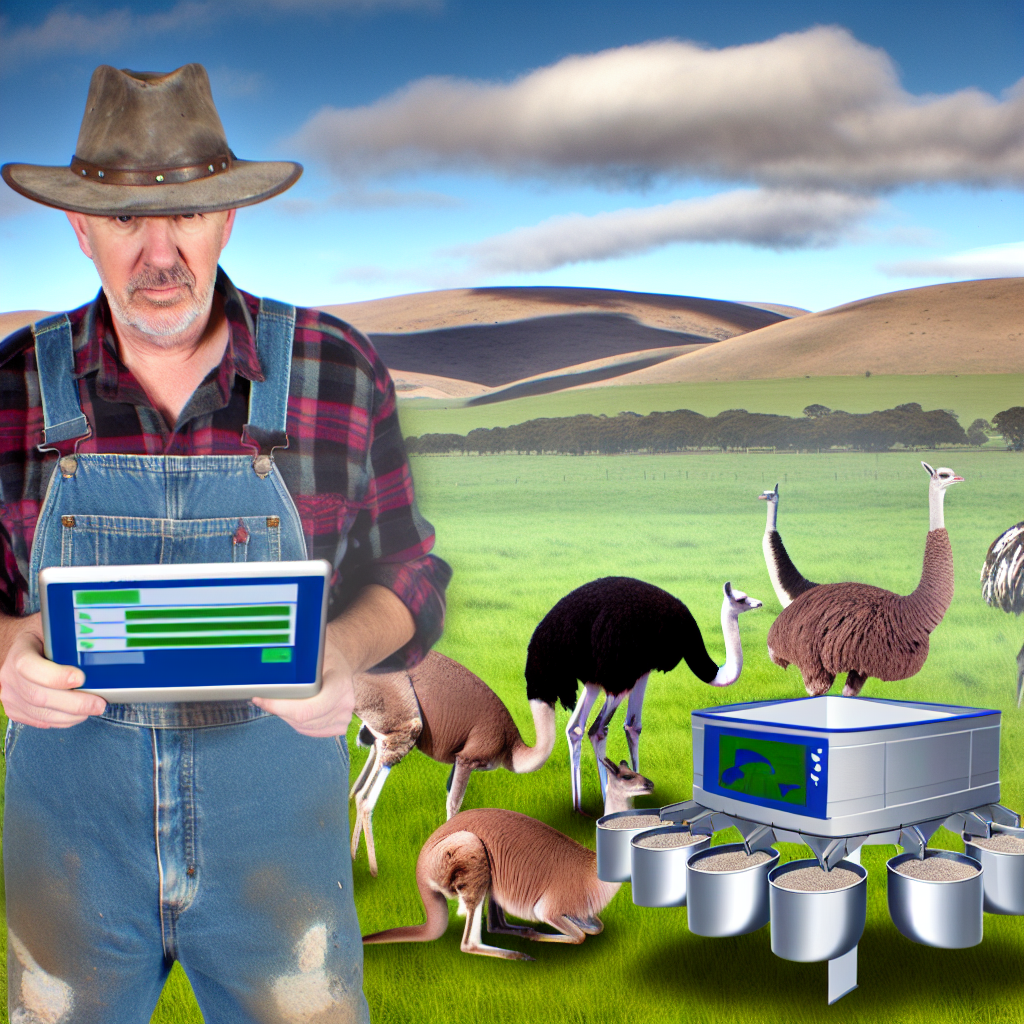
Automation in Feeding Systems for Maximizing Efficiency
Introduction to Automated Feeding Systems
Automated feeding systems revolutionize the care of exotic livestock.
They significantly reduce the labor required for daily feeding tasks.
Moreover, these systems ensure consistent and accurate feed delivery.
Benefits of Automation
Automation offers several advantages for livestock care.
First, it enhances efficiency in feed distribution.
Next, it minimizes food waste by providing precise amounts.
Additionally, automated systems improve animal health through timely feeding.
These factors contribute to overall productivity on the farm.
Types of Automated Feeding Systems
Various types of automated feeding systems are available today.
- Conveyor systems transport feed directly to feeding stations.
- Feeding robots can navigate pens and deliver feed directly to animals.
- Smart feeding solutions use sensors to monitor feed levels and adjust delivery.
Implementation Considerations
When implementing automated feeding systems, several factors must be considered.
First, assess the specific needs of your livestock species.
Next, evaluate the layout of your farm and available space.
Finally, ensure you have a reliable power supply and data connectivity.
Future Trends in Feeding Automation
The future of automated feeding systems looks promising.
Emerging technologies such as artificial intelligence will enhance decision-making.
Additionally, data analytics will allow farmers to optimize feeding strategies.
This evolution will lead to more responsive systems tailored to animal behaviors.
Telemedicine Solutions for Remote Veterinary Care
Introduction to Telemedicine in Veterinary Care
Telemedicine has transformed how veterinarians provide care to exotic livestock.
This technology allows for remote consultations, enhancing accessibility.
Additionally, it saves time and resources for both pet owners and veterinarians.
Benefits of Telemedicine for Livestock Care
Telemedicine reduces stress for animals by minimizing travel.
It enables quicker diagnosis and treatment recommendations.
Veterinarians can monitor health issues without the need for physical examinations.
Moreover, it allows for better follow-up consultations with pet owners.
Popular Telemedicine Platforms
Several platforms cater specifically to veterinary telemedicine.
- VetConnect offers real-time video consultations.
- PetMD provides online access to licensed veterinarians.
- TeleVet connects pet owners directly to their regular vets.
Challenges in Implementing Telemedicine
Despite its advantages, telemedicine faces some challenges.
For instance, technology access can be limited in rural areas.
Additionally, some conditions still require physical examinations.
Veterinarians must also navigate legal and regulatory concerns.
Future Trends in Veterinary Telemedicine
The demand for telemedicine in veterinary care continues to rise.
Advancements in technology will likely improve remote care capabilities.
Future solutions may integrate AI for better diagnostic support.
Furthermore, increased funding could enhance telehealth infrastructure.
Implications of Telemedicine on Animal Care
Telemedicine offers a promising future for exotic livestock care.
Showcase Your Farming Business
Publish your professional farming services profile on our blog for a one-time fee of $200 and reach a dedicated audience of farmers and agribusiness owners.
Publish Your ProfileIt supports efficient and effective veterinary services for pet owners.
These innovations will enhance animal health and wellbeing.
Case Studies of Successful Implementations of Technology in Exotic Livestock Farms
Smart Monitoring Systems in Wildlife Reserve
Technology enhances wildlife monitoring at the Silverback Conservation Reserve.
They use GPS collars to track animal movements.
This approach allows researchers to gather real-time data.
Consequently, they can assess behaviors and health status efficiently.
The data helps predict migration patterns and potential threats.
As a result, conservation efforts are more focused and effective.
Automated Feeding Solutions for Exotic Birds
At Feathered Friends Sanctuary, automated feeders support bird health.
These feeders dispense specific diets based on individual needs.
This technology reduces waste and ensures proper nutrition.
Moreover, it allows staff to monitor feeding habits remotely.
Consequently, they notice any health issues earlier.
As a result, bird welfare and longevity improve significantly.
Virtual Reality for Animal Behavior Studies
Researchers at Innovative Animal Care Institute employ virtual reality.
This technology immerses animals in simulated environments.
Through it, they can observe natural behaviors in different contexts.
Moreover, it aids in evaluating stress responses in exotic species.
By using VR, researchers improve animal welfare practices.
Consequently, care approaches can be refined for diverse species.
Mobile Apps for Farm Management
Agricultural app developers teamed up with Exotic Livestock Expo.
The app allows farmers to track herd health easily.
Farmers can log vaccinations, diet changes, and health observations.
The app sends reminders for upcoming veterinary appointments.
Thus, it promotes proactive care and better record-keeping.
Farmers report increased efficiency in daily operations following use.
Drone Technology for Habitat Monitoring
Drone technology revolutionizes habitat assessments at Wild Life Odyssey.
They capture high-resolution aerial images of large areas.
Using these images, conservationists identify habitat changes over time.
Furthermore, drones can spot invasive species quickly.
By acting fast, management strategies become more effective.
This technology enhances overall biodiversity efforts significantly.

